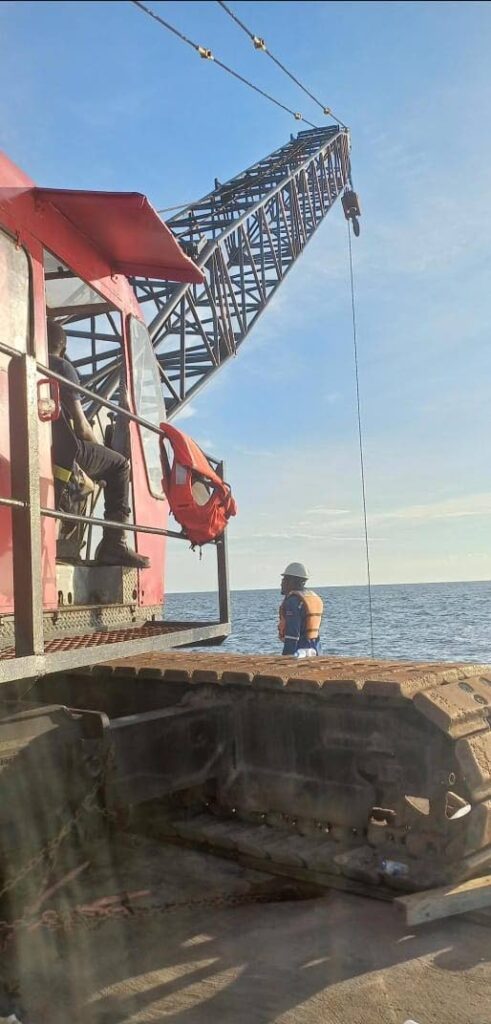13 years awaiting trial for murder – Rising above challenge to survive

No one ever expected them to succeed. Many people were sure they would end up back behind bars.
Sunday Newsday tracks the progress of eight men who won their cases or got out on bail. Their lives outside prison are featured in a series on inmates from Debbie Jacob’s CXC English classes and debate teams.
Why did these men make it when so many others failed?
Read their stories of redemption, rehabilitation and reinvention in the Sunday Newsday.
MT defies the stereotypical image of an inmate.
Charged with murder in January 2011, when he was 24, he spent nearly 13 years in Remand Prison (one of the three prisons at Golden Grove) before getting bail on January 30.
Always positive, equally liked and respected by officers and inmates, he helped to form a vibrant remand prison debate team that delivered compelling arguments in the Wishing for Wings/prison interstation debates. He made the seven top debaters in the all-star team made up of inmates from all ten prisons. They defeated a team from UTT twice and won against a team of prison officers.
“Everyone in Remand Prison backed the debate team,” said MT. “Officers allowed six inmates at a time to come together during airing (the daily hour that remanded inmates get out of their cells).
“In the exercise yard, we practised our arguments. Inmates were our audience and they said, ‘See what you say there? Change that,’ or ‘You should take this out or add this. Put those arguments in layman’s terms.’
"We considered their views and involved the whole prison. We put Remand on the map.”
Before the third year of inter-station debates and at the height of Remand Prison’s debate success, MT stepped down as team captain, along with another inmate from the original team.
“After two years, we understood what the audience wanted. We felt our job was to develop debating skills in other inmates and give others a chance.”
The remand prison had long recognised MT’s superior communication skills. Before the debates, the prison sent MT on a public-speaking course and put him in the prisons’ mentoring programme to talk to at-risk schoolchildren.
When MT, now 36, came home on bail, nothing outside prison was as he imagined. His daughter, just four when he went to prison, was now 17.
He felt totally lost.
“Everything had changed: the cost of living, wages, my field of work – and the crime situation is worse. Asking a man for a firearm is like asking a man for a pair of pliers now.”
MT is a highly-skilled, certified crane operator.
“Before prison, I worked at Petrotrin for $109 an hour. Now, I work for $50 an hour.”
Even with a skill highly in demand, MT faces the same frustrations as all inmates re-entering society from prison.
“I had to go through a lot for a certificate of character. Nobody does their job in these offices. I had to do all of their running around for them. I applied in February and got through in August.
"When I heard the certificate had arrived, I went to the police station to collect it and the officer said, ‘I don’t have time for that. Come back tomorrow.’”
MT was born in a rural area near Gasparillo. When his mother went abroad to work, he lived with his maternal grandmother in Couva. He spent his teenage years from 13-18 in the US state of New Jersey, where he earned a high school diploma. (In prison he earned 2s in CXC English and maths without classes, and with the help of prison officers who took him out of his cell for revision).
“I didn’t come from a broken home. My father and mother were always there. They sent us to school.
"Two months before I turned 18, my father asked, ‘What do you intend to do with your life?’ I didn’t know. He said, ‘You should go to do a crane course.’
 His father paid for the course in the US. But MT couldn’t get work when he finished training.
His father paid for the course in the US. But MT couldn’t get work when he finished training.
“I was underage. You’re supposed to be 25 or older to be a crane operator in the US. I had a pre-certificate, but couldn’t get a job.”
By this time, his parents, who had never intended to remain in the US, had returned to Trinidad.
“My father said, ‘Come to Trinidad,’ because I could work a crane there. He sent a plane ticket for me. I didn’t go. He called my sister and said, ‘I’m sending a next ticket, so I want you to drop this gentleman to the airport.’ My father worked at Caroni (1975) Ltd at the time.”
MT went to work at Caroni too, at first as a rigger, who hooks up whatever the crane is picking up, and then as a banksman, who tells the crane operator where to put what he picks up.
“I had a skill, was never out of work and made good money.”
When he returned to the “free world” earlier this year, MT discovered cranes had become more computerised. He adapted – just as he had in prison.
“Remand is a place where everyone talks gun, shoot and kill. Men who wake up in a cell for 13 years are frustrated. I always kept my head on.”
He remembers a conversation with an inmate who questioned how MT had so much power without ever being violent or angry.
“I said, ‘I don’t have to be a gang leader or a criminal to have a play. If you give respect, you get respect, and I do that.
"Remand Prison is a place where you learn something new every day. Remand came like my university. I never wanted to move to another prison and officers wanted to keep me there. People have a saying, ‘Nothing good comes out of Remand.’ I wanted to prove everyone who said that wrong.”
He often thinks of the men he left behind there.
Sometimes I say, ‘I wish I could be the voice for the remandees. I would talk about the remand situation – the long wait for trials, the conditions inmates live in with overcrowded cells. I would address the justice system.
"It’s still in a state. Problems come up with these court delays. They can’t find witnesses after so many years. Cellphone numbers change. Witnesses move or die. Sometimes the court can’t understand the arresting officer’s handwriting, so now they have to locate the officer. He could take a year to write back what he originally wrote in those files.
“We all want justice, and these delays are not helping anyone.”
The system weighs heavy on inmates waiting over a decade for their trials – even if they can get bail, as MT did.
“I have a job opportunity in Guyana that is lost to me, because I am considered a flight risk. I’m not allowed to leave the country. I could make US$100 an hour in that job.”
MT said prison can only be considered lost time, and chances are you will lose someone you love.
“My grandmother had ten grandchildren. I was one of her favourites. I used to carry her to the doctor and market.
"She was the first person I lost.
"Then my father died of a heart attack. I saw his body in the funeral home. (Prison officers took him). I didn’t go to the funeral. I was going to debates and to schools with no handcuffs, but if I went to the funeral, I would have to be handcuffed. I saved myself that embarrassment.
“These are things that affect men, and then when they come out of prison, they’re stigmatised and poor. What choices do they have with no skill?"
At home now, when he’s not working, MT spends time on his Playstation 5.
“I play games, take in the news – just to hear someone else died. I give the Playstation a rest, just so I don’t become too addicted. Then I read books my girlfriend has around the house.
"I was so busy in prison, I didn’t have time to read, but I took up reading at home.
“I read The Great Gatsby by F Scott Fitzgerald. He liked money. I read Normal People by Sally Rooney. My girlfriend has love stories like that around. I am reading A Basket of Flowers, by Christoph von Schmid. That’s about the problems a girl faces from greedy and mean people.”
Reading offers a welcome escape.
MT still has no court date.
By day, MT, who lifted everyone’s spirits in Remand, controls a powerful crane. At night, he studies how a sluggish justice system lets everyone down and makes people powerless.
His trademark optimism slips and he says, “I believe the system is creating its own monsters.”
Editor's note: The name of the subject of this piece has been withheld as he is still to be tried, and Newsday wishes to avoid influencing the fairness of his trial.

Comments
"13 years awaiting trial for murder – Rising above challenge to survive"